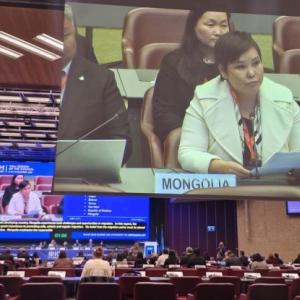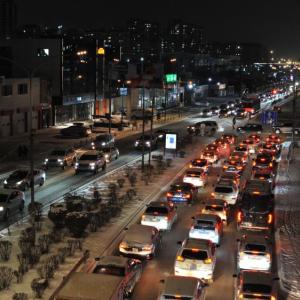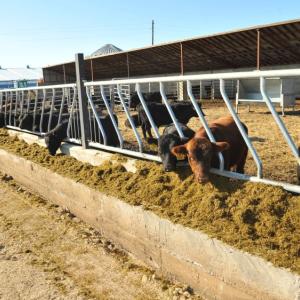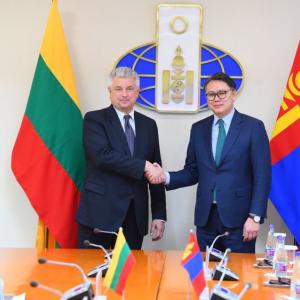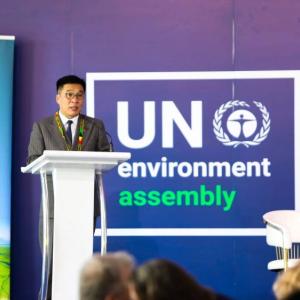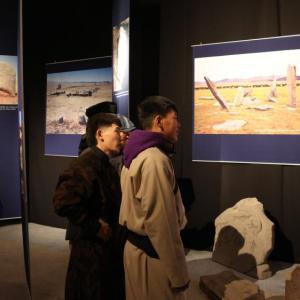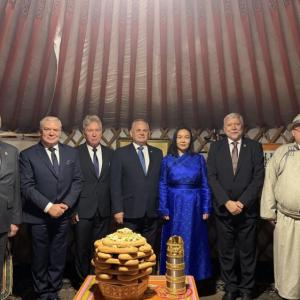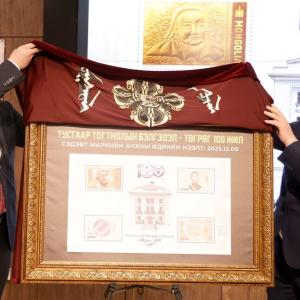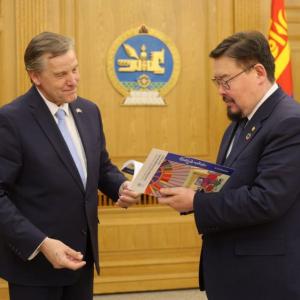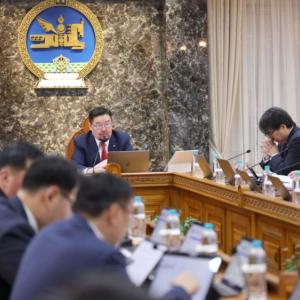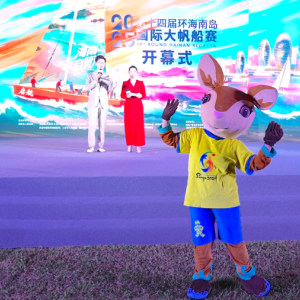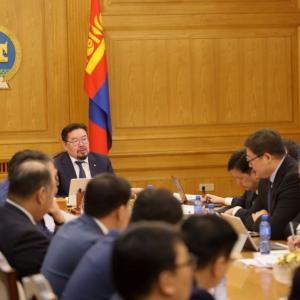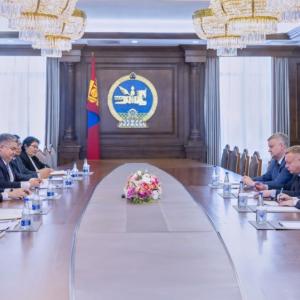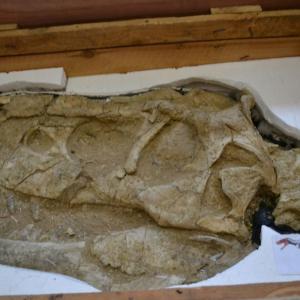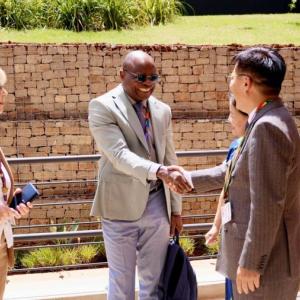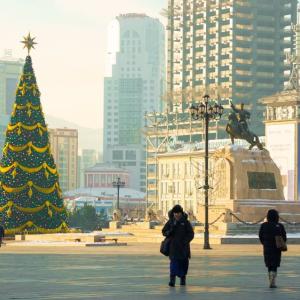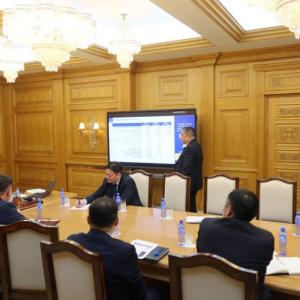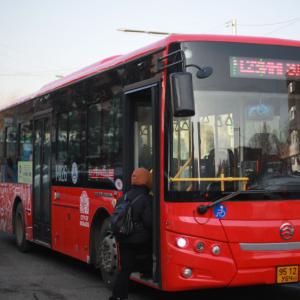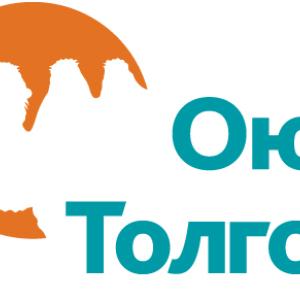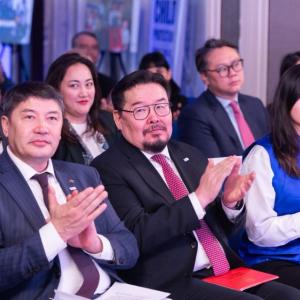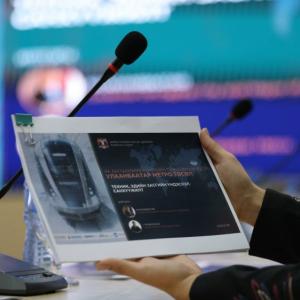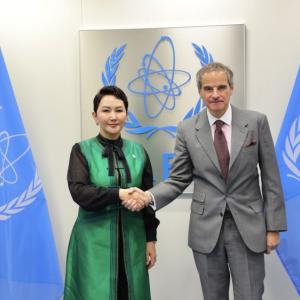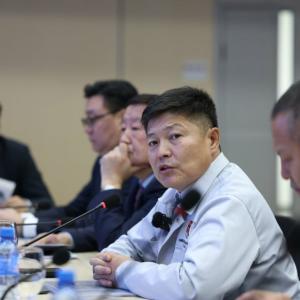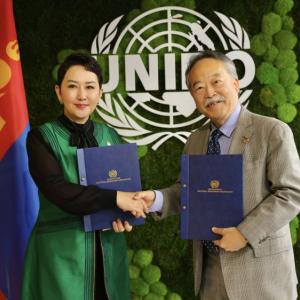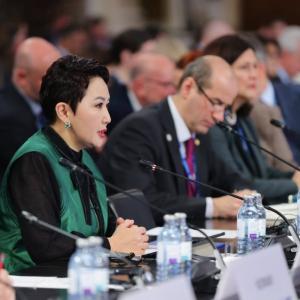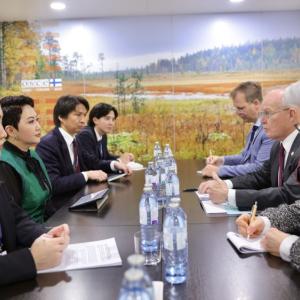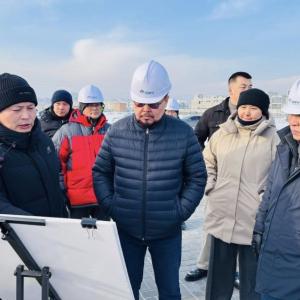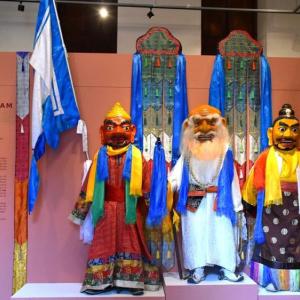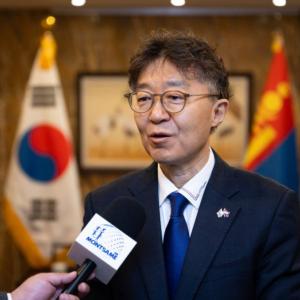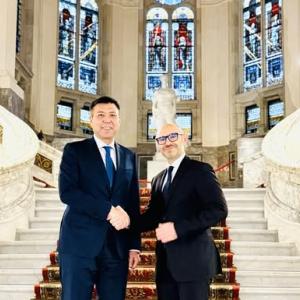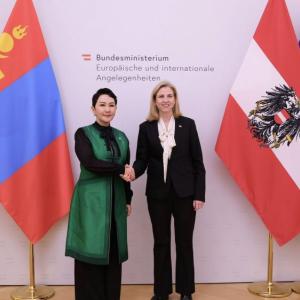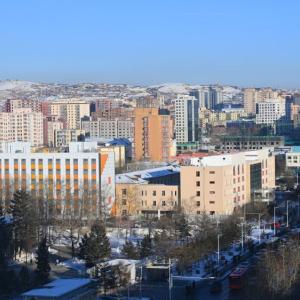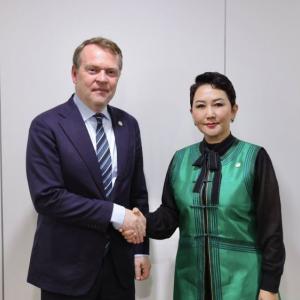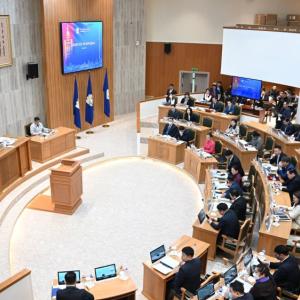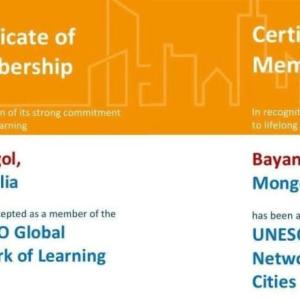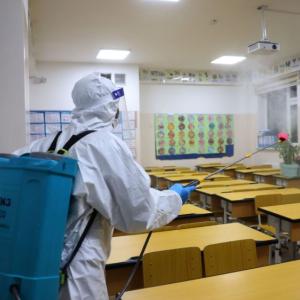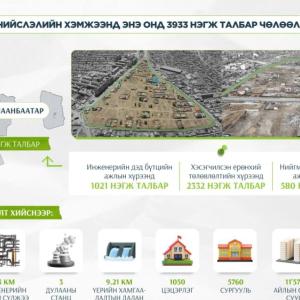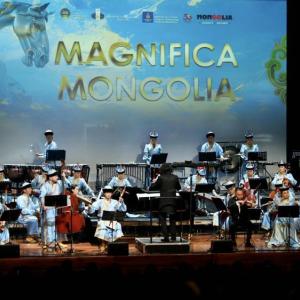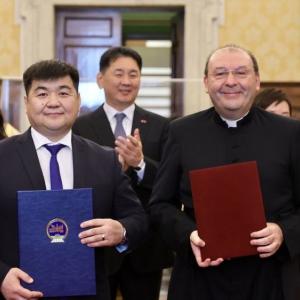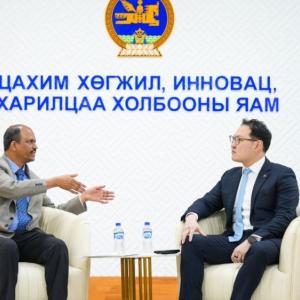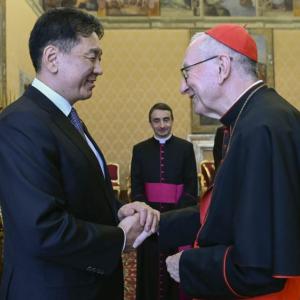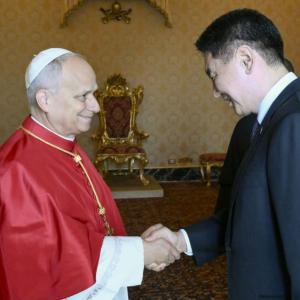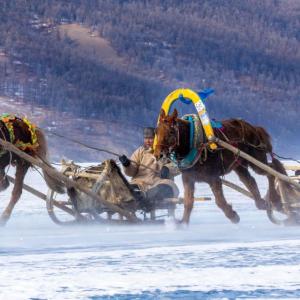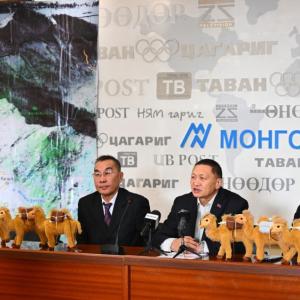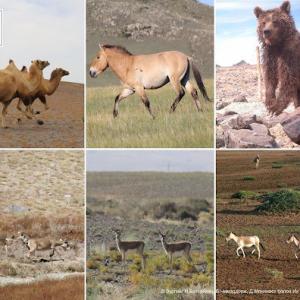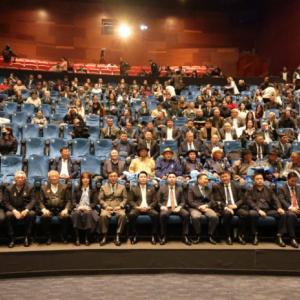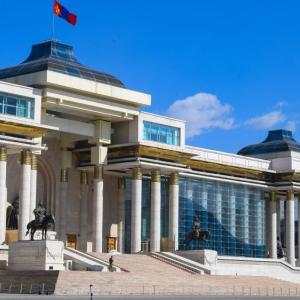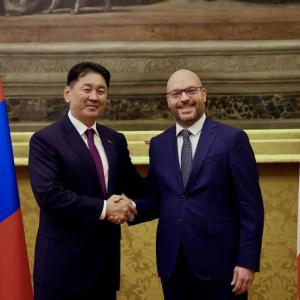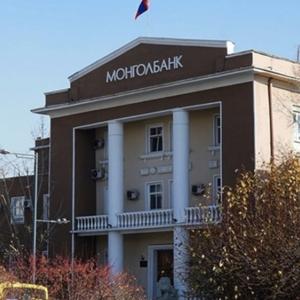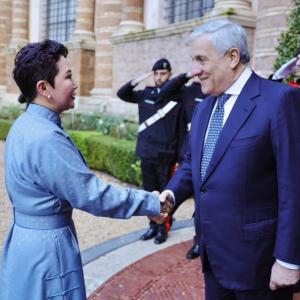J.K.Alan Sanders: “Mongolia has changed physically”
The Mongol Messenger
Senior Mongolist shares his story and perspectives
On August 15-18, the 11th International Congress of Mongolists convened in Ulaanbaatar under the general theme 'Mongol Studies and Sustainable Development'. The event was organized under the patronage of the of the President of Mongolia Ts.Elbegdorj who refered it to as 'the Olympics of Mongolists'. More than 400 scholars and researchers from 29 countries were brought together in Ulaanbaatar for the quinquennial event. Mr.Alan Sanders, a Mongolist from the UK, who was attending the event, talked to the Mongol Messenger about his stories and perspectives connected to Mongolia.
When an elderly man stood up to deliver a speech at one of the panel sessions of the 11th International Congress of Mongolists, I silently wondered if he was one of the oldest Mongolists alive today. I was right. He kindly welcomed my request to hear some of his quest in and about Mongolia. Back in 1968, an exchange student from the UK came to the then socialist Mongolia. He wasn’t just an exchange student; he was a Mongolist and had already written his first book about Mongolia. His name was Alan John Kelday Sanders. He was 31 at the time.
Mr. Sanders, now 79, has been and is still attending the International Congress of Mongolists. In fact, it is his 12th time in Mongolia since 1968. “My book was published in 1968 which was the year I first came to Mongolia. It was called ‘People’s Republic of Mongolia: a General Reference Guide”, he told me. “I often had Mongolian and Russian text through ‘Unen’ and ‘Novosty Mongolii’ of MONTSAME, so I was able to collect information about Mongolia. That’s how it began,” he recalls the old times.
“I was delighted because Mongolia was just as beautiful as I imagined. Then I had to learn from my own personal experience about the life and people of Mongolia.” He shared his first impressions of 1968 Mongolia with me. Mr. Sanders stayed in Mongolia for four months during winter. “It was actually very cold that year. In those days, they used to have parades on Sukhbaatar Square. It was all very interesting; but -40 degrees is very cold”, he laughed. “I don’t think I have never been quite so cold standing in the street for two hours. But I still have photographs of that time”, he remarked. Now that’s what I call fortune because being even younger than Mongolian democracy, I was thrilled to know that he was in possession of rare photographs of Mongolia almost 50 years back.
His first article about Mongolia came out in 1972 in an English journal in Hong-Kong named ‘Far Eastern Economic Review’ after which he continued writing about Mongolia for many years. His other publications about Mongolia may include ‘Colloquial Mongolian’ and ‘Mongolian: Lonely Planet Phrasebook’ which he co-authored with J.Bat-Ireedui, ‘Mongolia, Politics, Economics and Society’ and ‘Historical Dictionary of Mongolia’, one of his well-known works.
“Mongolia has changed physically; more buildings, lots of people on the street, more cars than back in 1968. Hardly anybody owned a car at that time, but underneath, Mongolian people are still very much the same; they have the same interest, same fears and same worries as they used to have. Economic conditions of the country are different, but the same uncertainties such as worries about the future of the country or physical safety of the country still exist as they used to.” He compared the Mongolia he came to in 1968 and the Mongolia he now knows. “But you could say that Mongolians feel happier now because they have international treaties to safeguard the future of the country”, he added after which his wife Tina Tamman, ‘a part-time Mongolist’ as Mr. Sanders defined, suggested her opinion about Mongolians’ punctuality. “They’re more punctual now”, they both agreed.
“I have to say that it was one of the happiest days of my life when democracy came to Mongolia, and of course, democracy is a problem because it requires all kinds of new ideas and things. Some of these haven’t yet come completely true even after 25 years. There are still some things which still reflect the old Mongolia; but overall, I’m very happy with Mongolia’s shift to democracy in 1990."
Since the establishment of the International Association for Mongol Studies in 1987, Mr. Sanders has been coming to Mongolia every five years to attend the Congress. Moreover, he and his wife have visited Mongolia as tourists as well. “What I like best of all is the colors you have, they are unusual. You have turquoise and mauve, the kind of colors that other countries don’t have. They are in the hills and the way clouds form and throw shadows on the ground. It’s a very beautiful landscape”, said Tina who is the author of a British novel ‘Portrait of a Secret Agent’. “I like the spring landscape when the grass is green and the wild flowers come up”, Mr. Sanders added to his comment. “We live in England and what is very attractive in Mongolia is that you can go somewhere where there are no people there at all and it is silent,” Tina conveyed.
Both as a young Mongolian and a journalist, I was very fortunate to have met such a an important figure in Mongolian studies given how much he saw and understands of Mongolia, including the width of insight he has into our country. He continued to surprise me with more revelations such as being a long-time subscriber to The Mongol Messenger and being connected to the ‘MONTSAME’ agency. Mr. Sanders, being a subscriber of the Mongol Messenger has kept all copies of the newspaper since 1992 up until now and wanted to convey his suggestion regarding the adaption of standard system of spelling ‘Romanization’ to the newspaper.
Seeing as how he came to Mongolia as early as in 1968, and knows what Mongolia has gone through before and after the Democratic Revolution, I personally would define Mr. Sanders as a walking source of Mongolia’s progress of the last 50 years. I reckon he was happy to convey his perspectives and recall his memories about Mongolia and would be happier to pass on his deep knowledge of our country to those with a keen interest to study Mongolia and carry on his legacy.
Kh.Aminaa
The artcile is featured in the Mongol Messenger's issue No.33 for August 19, 2016.
 Ulaanbaatar
Ulaanbaatar





